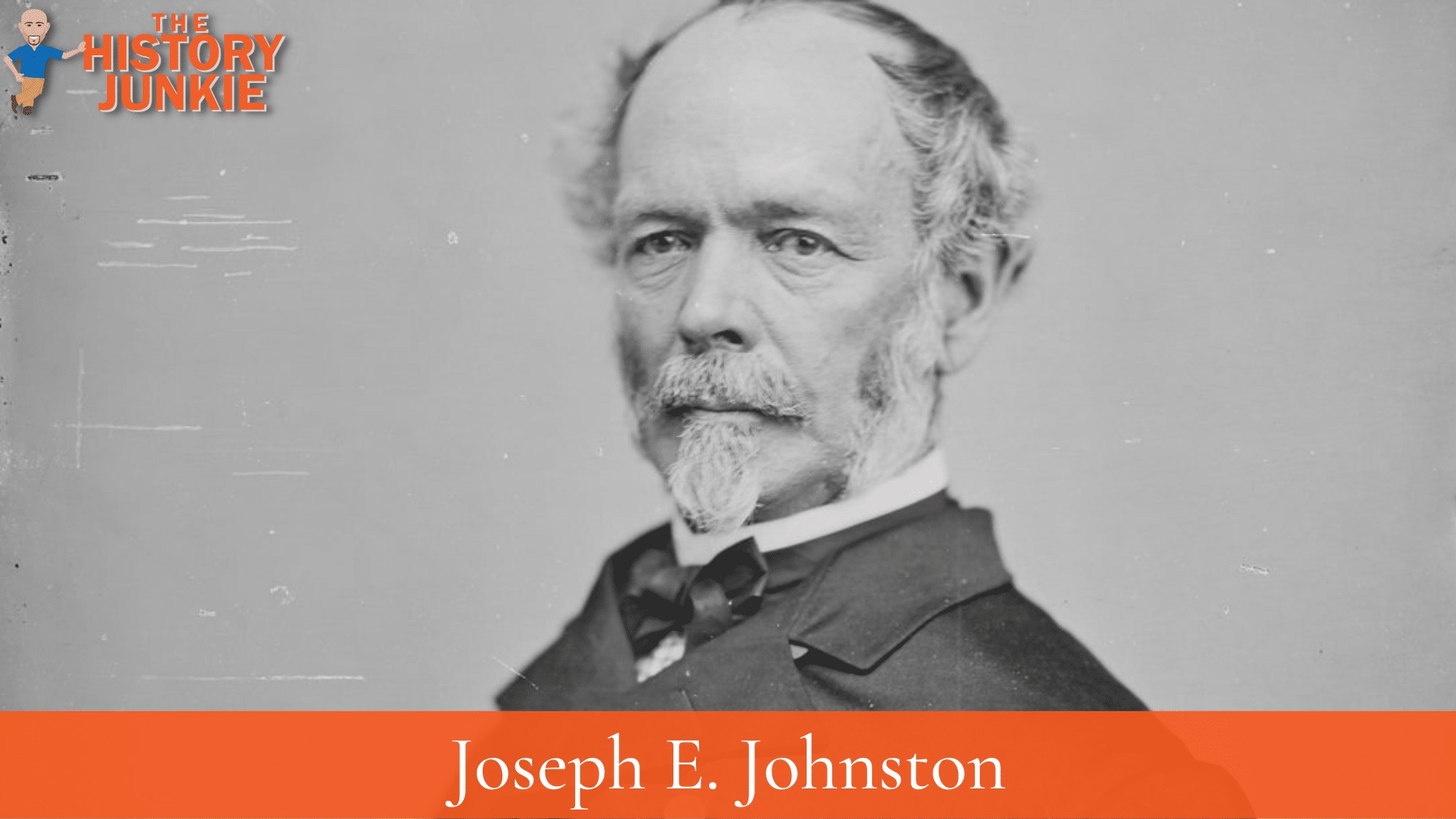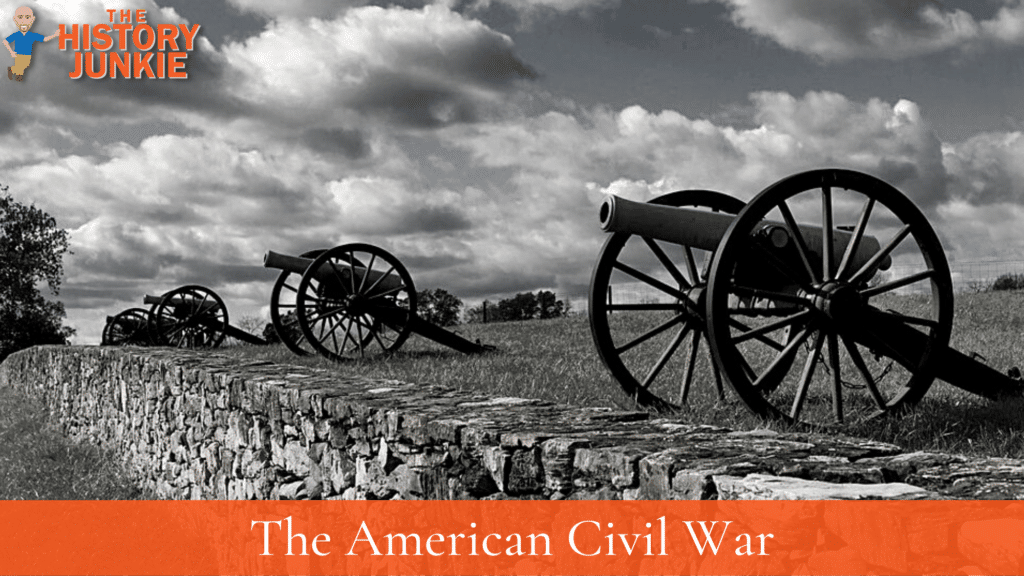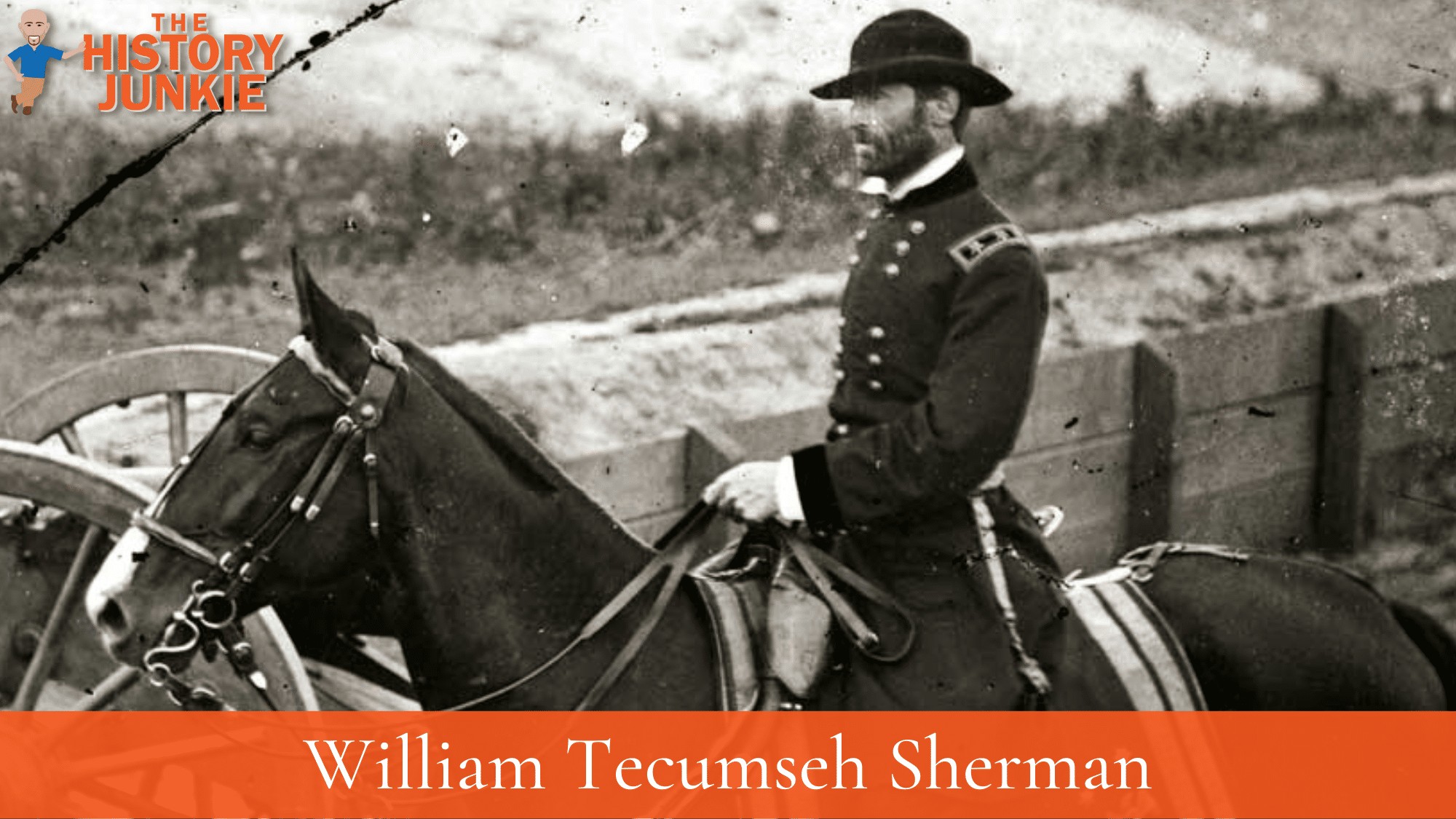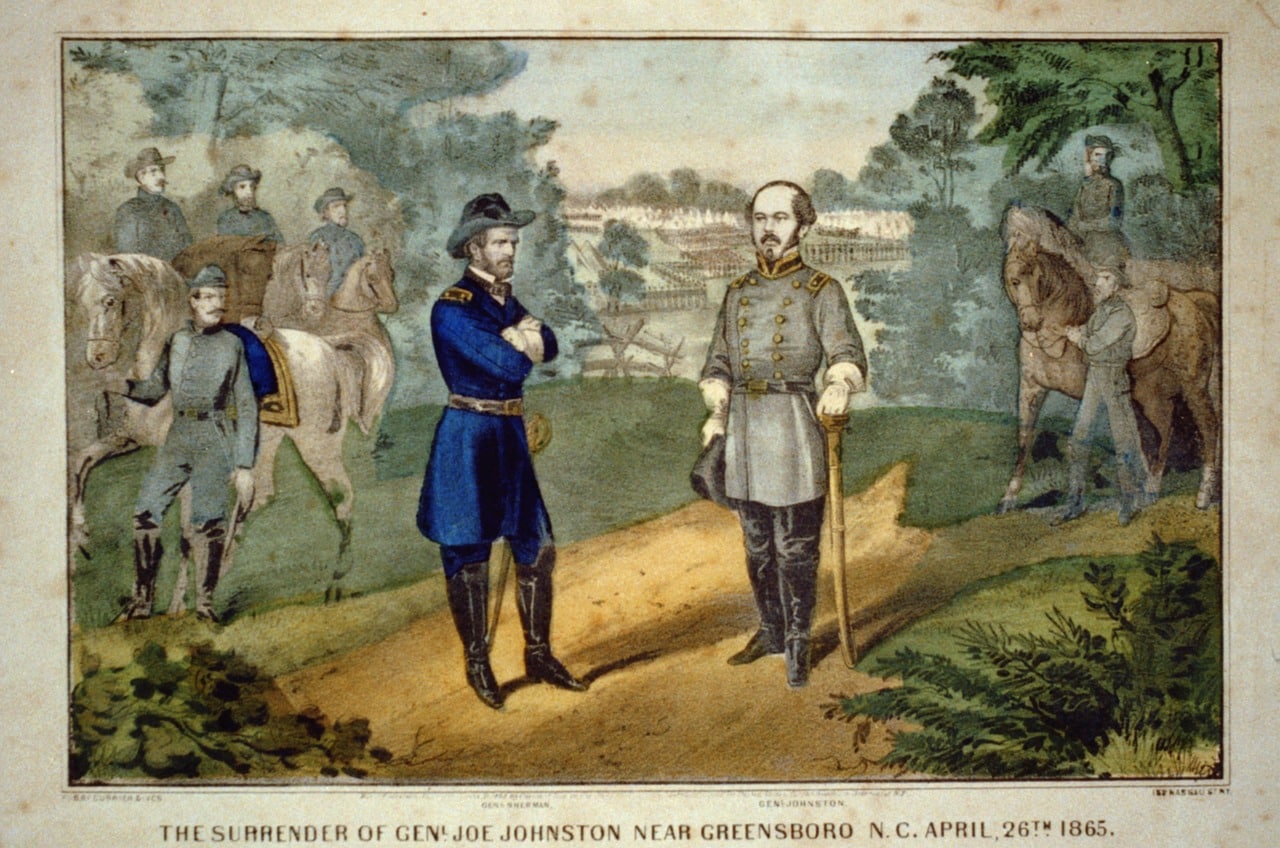Joseph E. Johnston was a Confederate general during the American Civil War.

He was a career military man who had graduated from West Point with fellow Confederate General Robert E. Lee and served in the Mexican War under Winfield Scott. After the Mexican War, he served in the Seminole Wars against the Seminole tribe in Florida.
When the Civil War began, he sided with the Confederacy due to his loyalty to Virginia.
Early Life
Joseph E. Johnston was born in the still small town of Farmville, Virginia. He was the grandson of a Scottish immigrant, Peter Johnston, who arrived in 1726. His grandfather's migration to the 13 colonies gave him deep roots in Virginia.
His father, Peter Johnston Jr., became a successful Judge, which would create opportunities for each of his children. His father married Mary Valentine Wood, who was the niece of Patrick Henry.
He was named for Major Joseph Eggleston, under whom his father served in the American Revolutionary War, in the command of Henry Lee III.
His siblings also were entrenched in Virginia politics. His older brother, Charles Clement Johnston, was a U.S. congressman, and his nephew would become a Virginia senator.
When Johnston was 4 years old, his family moved to Abingdon, Virginia, which was near the Tennessee border. The small town is near the Appalachian Mountains and has connections to Daniel Boone.
Peter Johnston Jr. built a home he named Panecillo.
Johnston attended the United States Military Academy, nominated by John C. Calhoun in 1825 while he was Secretary of War.
He was moderately successful in academics and received only a small number of disciplinary demerits. He graduated in 1829, ranking 13th of 46 cadets, and was appointed a second lieutenant in the 4th U.S. Artillery.
He would become the first West Point graduate to be promoted to a general officer in the regular army, reaching a higher rank in the U.S. Army than his 1829 classmate, Robert E. Lee (2nd of 46).
Early Military Service
He resigned from the Army in March 1837 to pursue studies in civil engineering. He would become a civilian topical engineer during the Second Seminole War.
During the war, he would see a lot of action as a civilian. In one battle, he said there were around 30 bullet holes in his clothing, and one bullet left a scar on his scalp for the rest of his life.
After that, he rejoined the U. S. Army and was appointed first lieutenant of topographic engineers and would lead explorations of the Florida Everglades.
He would become one of the few famous explorers to explore the Everglades since the Spanish Conquistadors during the Age of Exploration.
Civil War

Service in Virginia
At the onset of the Civil War, Johnston was a Brigadier General in the US Army, serving as Quartermaster General.
When Virginia seceded, he resigned his commission to join the fledgling Confederacy, the highest-ranking officer to do so.
He was in command during the First Battle of Bull Run, although he delegated command on the field to his second-in-command, P. G. T. Beauregard, who was more acquainted with the battlefield.
In recognition of that victory, Johnston was promoted to command the Confederate forces defending Virginia against the Union Army of the Potomac.
His relations with Confederate President Jefferson Davis were strained, however, when Davis revealed the ranks of the Confederate full generals.
Johnston, who considered himself the highest-ranking soldier of the Confederacy because he had outranked his colleagues in the US Army, was placed fourth behind Samuel Cooper, Albert Sidney Johnston, and Robert E. Lee.

Johnston sent Davis an aggressive letter of protest, the beginning of a severe deterioration of their relationship that led to a complete breakdown later in the war.
Johnston contested Union General George B. McClellan's invasion of the Virginia Peninsula until he was wounded at the battle of Fair Oaks. His fellow student Robert E. Lee succeeded him.
Vicksburg
When Johnston had recovered, he was assigned command of Department No. 2, a vast district containing most of the Confederacy between the Appalachians and the Mississippi, where he was to ensure cooperation between the field armies of Braxton Bragg in Tennessee and John C. Pemberton in Mississippi.
When Union General Ulysses S. Grant seriously threatened Vicksburg in early May 1863, Johnston hurried to the location.
When he arrived at Mississippi's capitol of Jackson, 40 miles east of Vicksburg, Grant had already interposed his troops between Jackson and Vicksburg, making cooperation between Johnston and Pemberton difficult. Johnston ordered Pemberton to evacuate Vicksburg and save his army, but Pemberton delayed.

By May 4, Grant had dispatched two corps under William T. Sherman to drive Johnston from Jackson; Johnston, who at that time only had about 6,000 men, retreated.
When Pemberton was defeated by the remainder of Grant's army on May 6 at the battle of Champion Hill, the fate of Vicksburg's defenders was sealed.
While Johnston hovered in the vicinity with all the reinforcements he could gather, he never reached a strength sufficient to take on Grant, and communication with Vicksburg became so difficult that a coordinated attack on Grant from both sides became impossible.
After a long siege, Vicksburg surrendered on July 4. Grant immediately dispatched Sherman with overwhelming force to once again drive Johnston from Jackson.
Atlanta Campaign
When Braxton Bragg's Army of Tennessee was defeated by Union forces under Grant at the Battle of Chattanooga in November 1863, Jefferson Davis reluctantly removed Bragg from command and sent Johnston.
Davis' confidence in Johnston had declined severely after the Vicksburg debacle, with Davis blaming the fall of Vicksburg on "a lack of provisions inside, and a general outside who wouldn't fight."
Johnston proceeded to reorganize and re-equip the Army of Tennessee, a task well-suited to his administrative talents.
He took a strong defensive position at Dalton on the railroad connecting Chattanooga to Atlanta. Davis wanted Johnston to take the offensive as soon as possible, but Johnston, being outnumbered by his Union opponents, preferred to remain on the defensive until the Union armies had been defeated in battle and weakened.
He also claimed insufficient wagons and horses to supply his army when on the offensive.
By spring 1864, Johnston had been reinforced by Leonidas Polk's troops from Mississippi. His opponent was Sherman, who had succeeded Grant as Union commander of the Western theater.
Sherman engaged in a campaign of manoeuver, time and again outflanking Johnston, who retreated from one fortified position along the railroad to the next. Twice during this retreat towards Atlanta, Johnston tried to offer a battle.
The first time, his subordinates Polk and John Bell Hood claimed their lines could be stormed by Union artillery and could not be held.
The second time, Johnston tried to annihilate a separated column of Sherman's troops while it was out of supporting range of the rest of Sherman's army, but Hood, who commanded the attacking forces, canceled the attack when Union troops surprisingly appeared on his flank.
By June 27, Johnston and Sherman had reached Kennesaw Mountain, one of the last mountains of north Georgia before Atlanta. Again, Johnston assumed a fortified position, but here, Sherman believed Johnston had stretched his forces too thin and ordered a frontal assault.
The battle of Kennesaw Mountain was a bloody repulse for Sherman, but it did not suffice to cancel Sherman's numerical superiority, and when he resumed outflanking, Johnston once again retreated.
Meanwhile, Jefferson Davis became alerted by Johnston's repeated retreats and inquired about Johnston's plans for the defense of Atlanta, an important railroad hub.
Johnston's explanations were unsatisfactory for Davis, partly because Johnston believed he had to remain on the defensive and to adapt his actions to the enemy's, partly because Johnston was secretive and did not like to reveal his plans to politicians who, in Johnston's opinion, could not be trusted to keep a secret.
Finally, Davis dispatched Braxton Bragg, then the President's military advisor. When Bragg reported that he couldn't tell whether Johnston had any plans, Davis dismissed Johnston on July 17, 1864, and replaced him with John Bell Hood after Polk's death in battle, the Army of Tennessee's senior corps commander and renowned for his aggressiveness.
Carolinas
Davis was forced to recall Johnston, who remained popular with the public and with the soldiers, for the 1865 spring campaign after Hood had been defeated at Nashville and Sherman had marched through Georgia.
Sherman now threatened the Carolinas, but Confederate manpower was depleted. Johnston commanded an assortment of garrison troops and the remnants of the Army of Tennessee, but his strength never even reached half Sherman's.
Johnston still managed to repulse one of Sherman's columns at the Battle of Bentonville, North Carolina, on March 19–21, but when Union reinforcements arrived, he was forced to retreat.
By early April, the Confederate situation became desperate. Johnston suggested joining his forces with Robert E. Lee's Army of Northern Virginia, then besieged by Grant at Richmond. The combined Confederate forces could then try and defeat Grant and Sherman separately.
When Lee had to abandon Richmond, he retreated towards Johnston, but Grant's troops caught up with him at Appomattox Court House and forced Lee's surrender.
Johnston now considered the Confederate cause lost and advised Davis to surrender. Davis believed a guerilla campaign might still succeed but allowed Johnston to open negotiations with Sherman.
Johnston and Sherman agreed to terms very generous to the South, touching not only a military capitulation but also the South's political future. When Sherman submitted these terms to Washington for approval, he was rebuffed by President Andrew Johnson, and Grant was dispatched to secure a purely military capitulation.
On April 26, 1865, Johnston agreed to the terms Grant had granted Lee and surrendered the Army of Tennessee and the entire military district of the Carolinas, Georgia, and Florida.

Final Years
Although many Confederate generals criticized Johnston, Sherman, and Grant portrayed him favorably in their memoirs.
Sherman described him as a "dangerous and wily opponent" and criticized Johnston's nemeses, Hood and Davis.
Grant supported his decisions in the Vicksburg Campaign: "Johnston evidently took in the situation, and wisely, I think, abstained from assaulting us because it would simply have inflicted losses on both sides without accomplishing any result." Commenting on the Atlanta Campaign, Grant wrote,
For my own part, I think that Johnston's tactics were right. Anything that could have prolonged the war a year beyond the time that it finally did close, would probably have exhausted the North to such an extent that they might then have abandoned the contest and agreed to a settlement
After the Civil War, Johnston remained a Democrat and active participant in the fire insurance business as well as railroad construction.
Johnston, like Lee, never forgot the magnanimity of the man to whom he surrendered. He would not allow criticism of Sherman in his presence. Sherman and Johnston corresponded frequently, and they met for friendly dinners in Washington whenever Johnston traveled there.
Read Article: Famous Civil War Generals

When Sherman died, Johnston served as an honorary pallbearer at his funeral. During the procession in New York City on February 19, 1891, he kept his hat off as a sign of respect, although the weather was cold and rainy.
Someone concerned for his health asked him to put on his hat, to which Johnston replied, "If I were in his place, and he was standing here in mine, he would not put on his hat."
He died of pneumonia on March 21, 1891, in Washington, D.C., after catching a cold while serving as a pallbearer during Sherman's funeral.
